The field trip to the Hembrillo Battlefield took place on Saturday, Feb. 13.
The battlefield is located on White Sands Missile Range next to where
the Dona Ana/Sierra County line passes through the San Andres Mountains.
The battle was the result of the U.S. Army, under the command of Col. Hatch,
trying to return Apache Chief Victorio and his followers to their reservation.
The battle began with a skirmish at the east end of Hembrillo Canyon on April 5, 1880.
The main battle took place on the 6th and 7th in Hembrillo Basin, at the head of the canyon.
The battlefield is located on White Sands Missile Range next to where
the Dona Ana/Sierra County line passes through the San Andres Mountains.
The battle was the result of the U.S. Army, under the command of Col. Hatch,
trying to return Apache Chief Victorio and his followers to their reservation.
The battle began with a skirmish at the east end of Hembrillo Canyon on April 5, 1880.
The main battle took place on the 6th and 7th in Hembrillo Basin, at the head of the canyon.
____________________________________
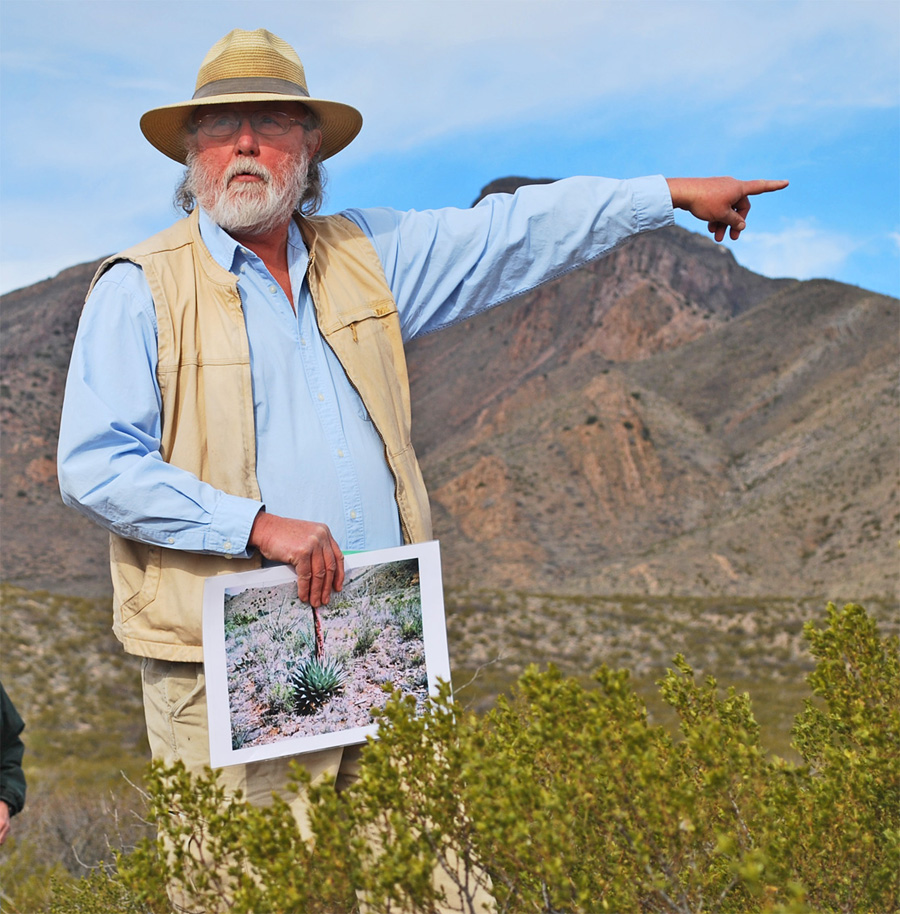
Karl Laumbach gestures as he explains the background for the Hembrillo Battle of 1880. Karl, with Human Systems Research,
figuratively and literally wrote the book on the battle. He volunteered his time to brief the membership during the tour of the canyon.
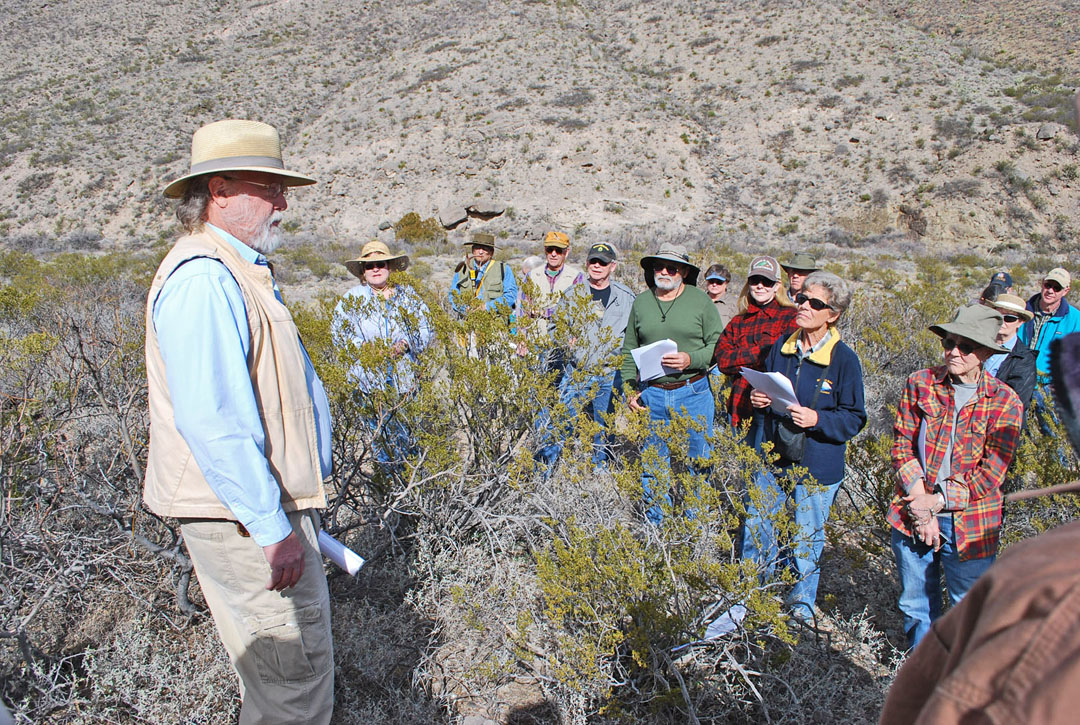
Karl briefs members of the DACHS at "Conline's" skirmish site where the lieutenant and his company of buffalo soldiers exchanged gun fire with Victorio's
warriors toward the evening of April 5, 1880. The skirmish set up the chain of events that followed as any plan for a surprise attack disappeared.
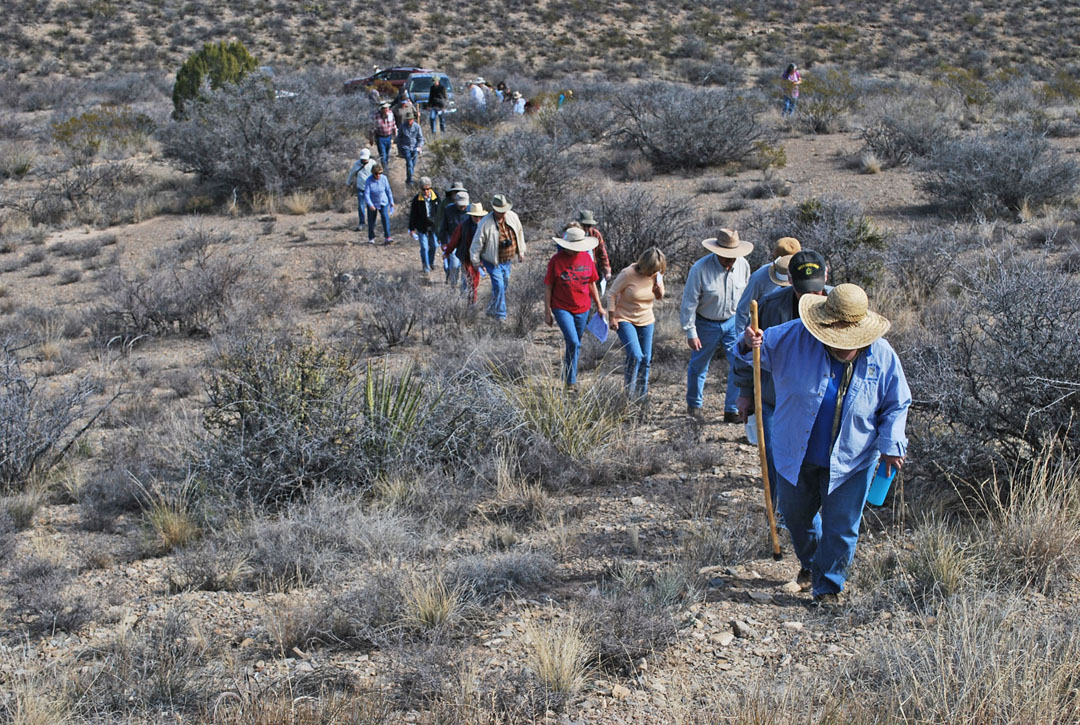
The group snakes its way up a primitive trail to Capt. Henry Carroll's position on the night of April 6, 1880.
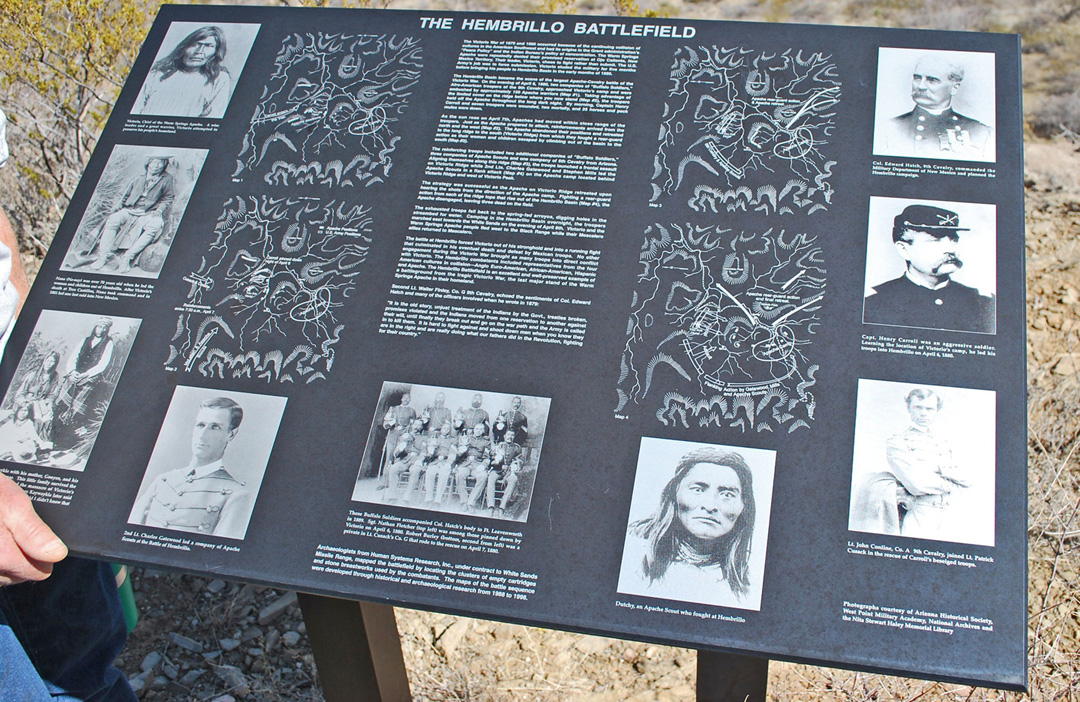
The sign on a ridge overlooking Capt. Carroll's position. The sign was erected by Human Systems Research after their study of the area.
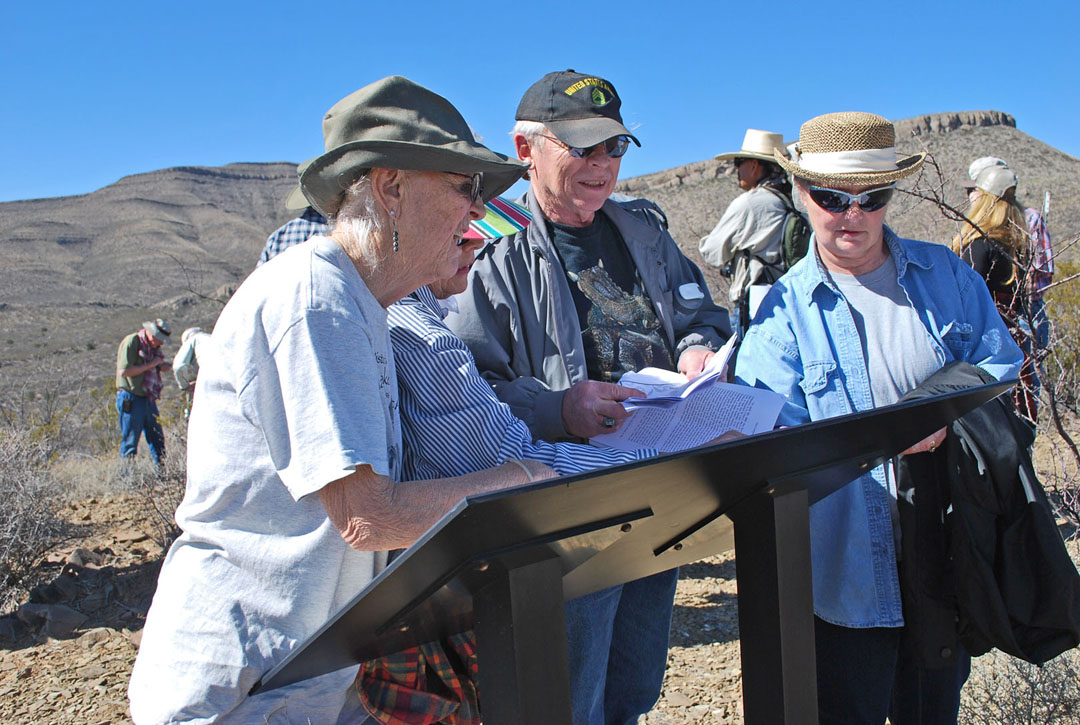
Members find where they are on the sign's maps.
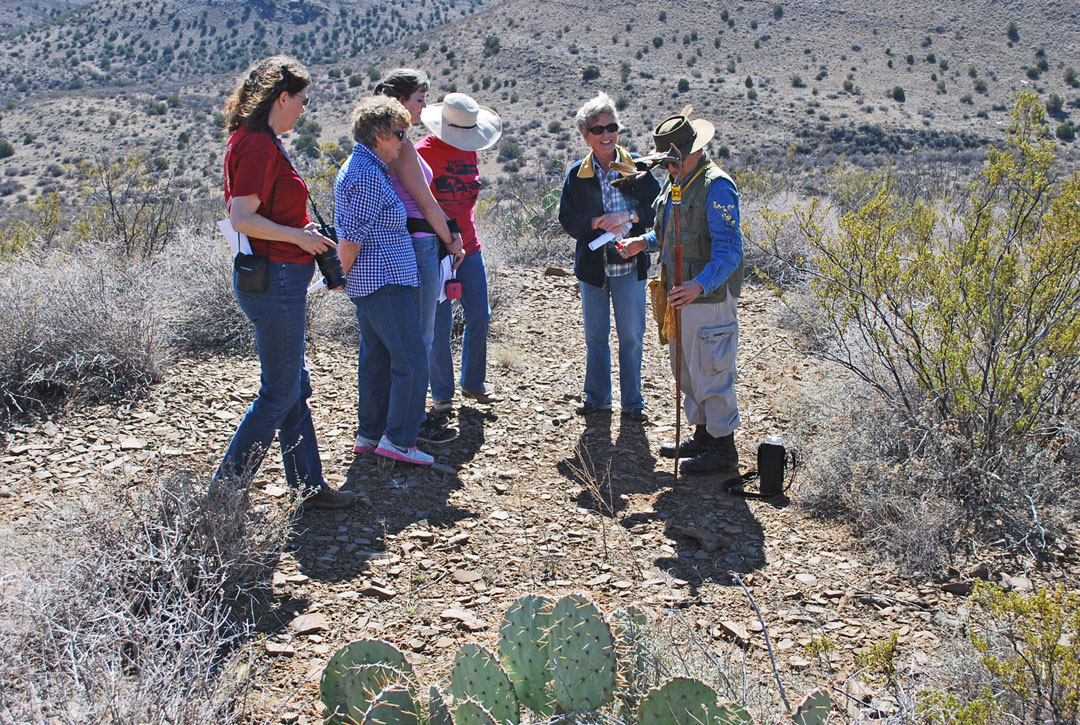
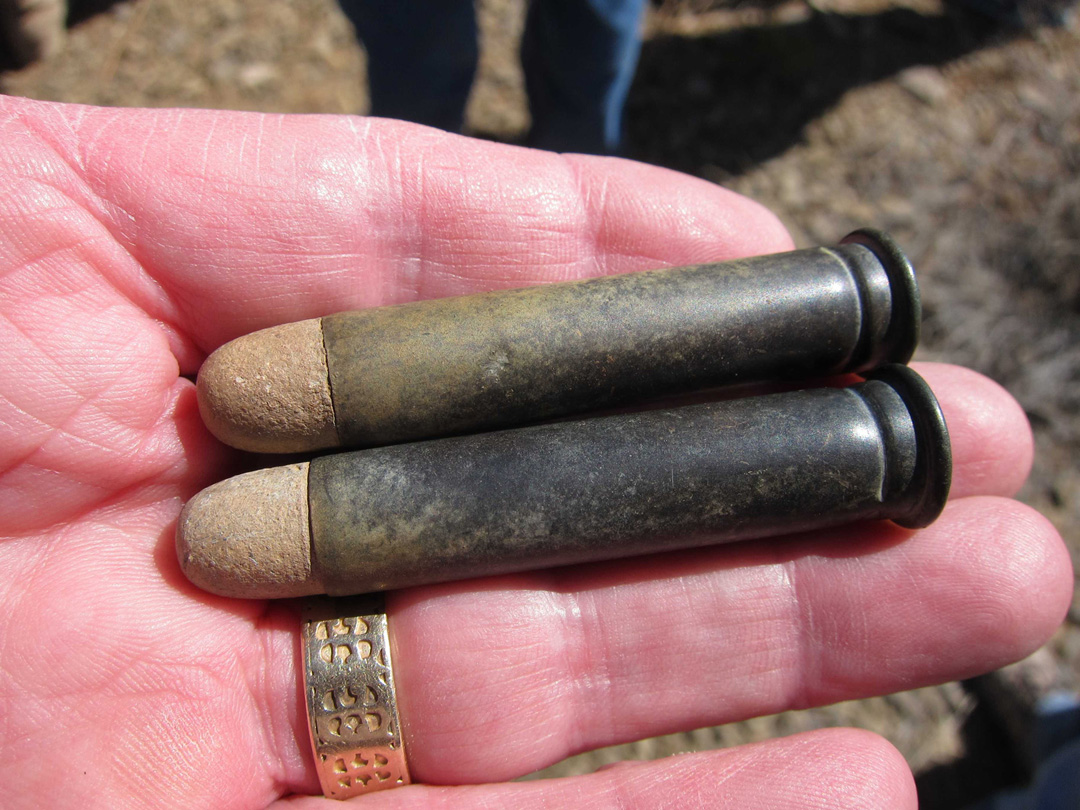
Tour leader Jim Eckles shows the group a couple of intact .45-caliber cartridges found on the battlefield.
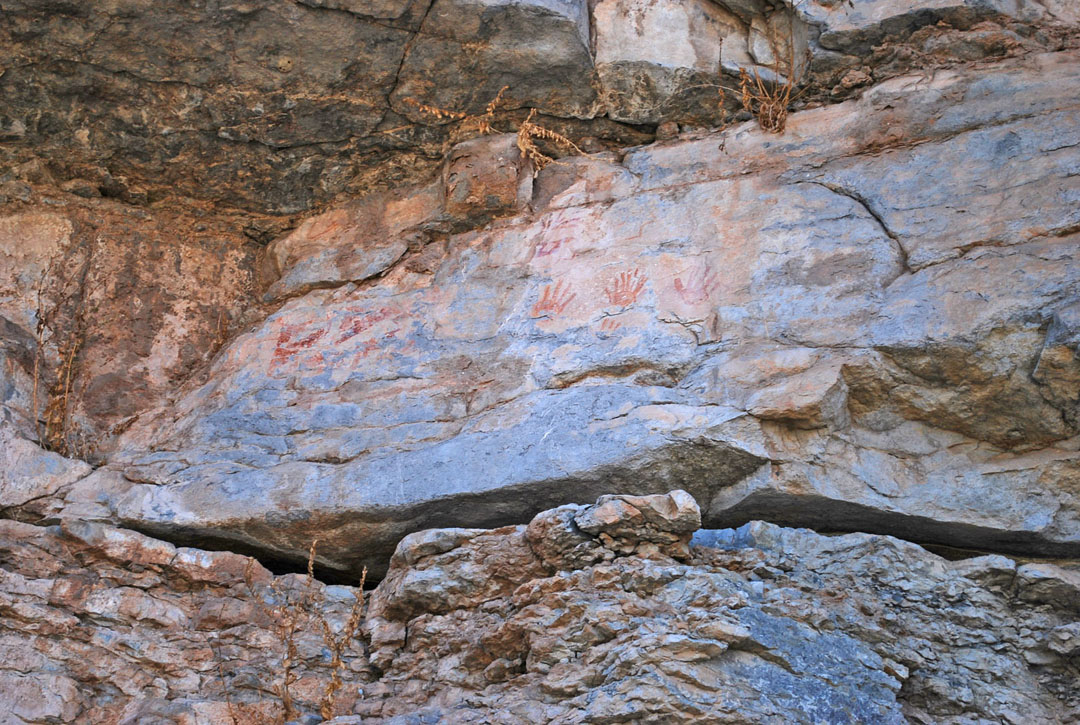
Some of the pictographs at a site in the canyon called "Bloody Hands" -- for obvious reasons.
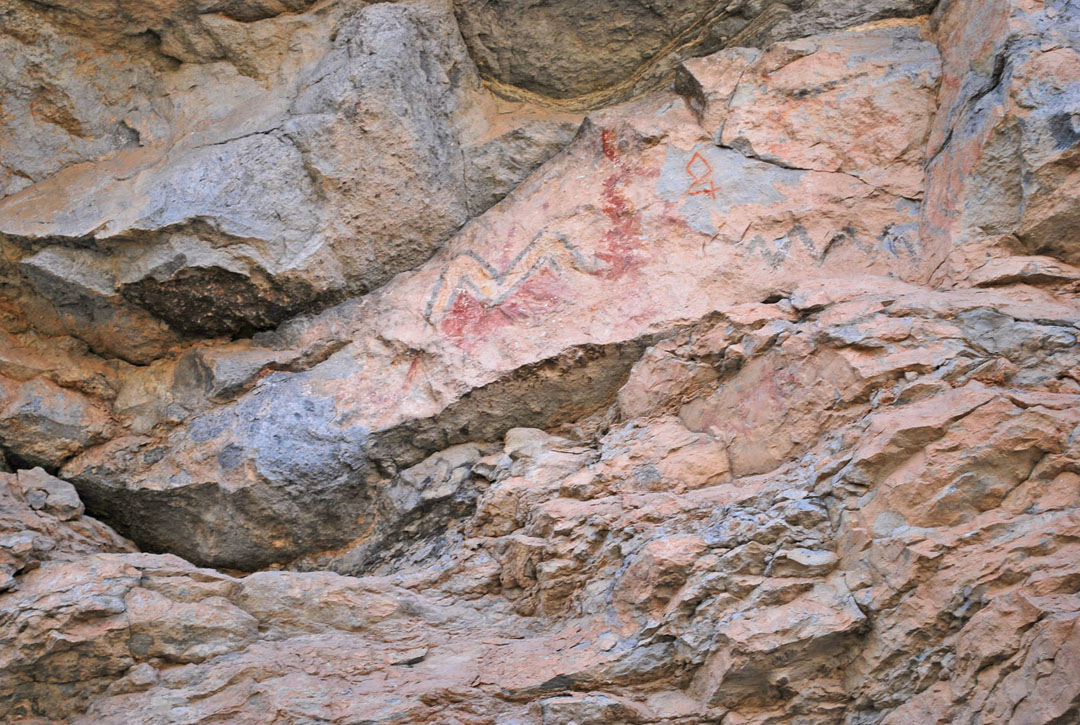
Other images at Bloody Hands. The diamond 4 is the mark of Juan Bernall who herded goats in the canyon in the early 20th century.
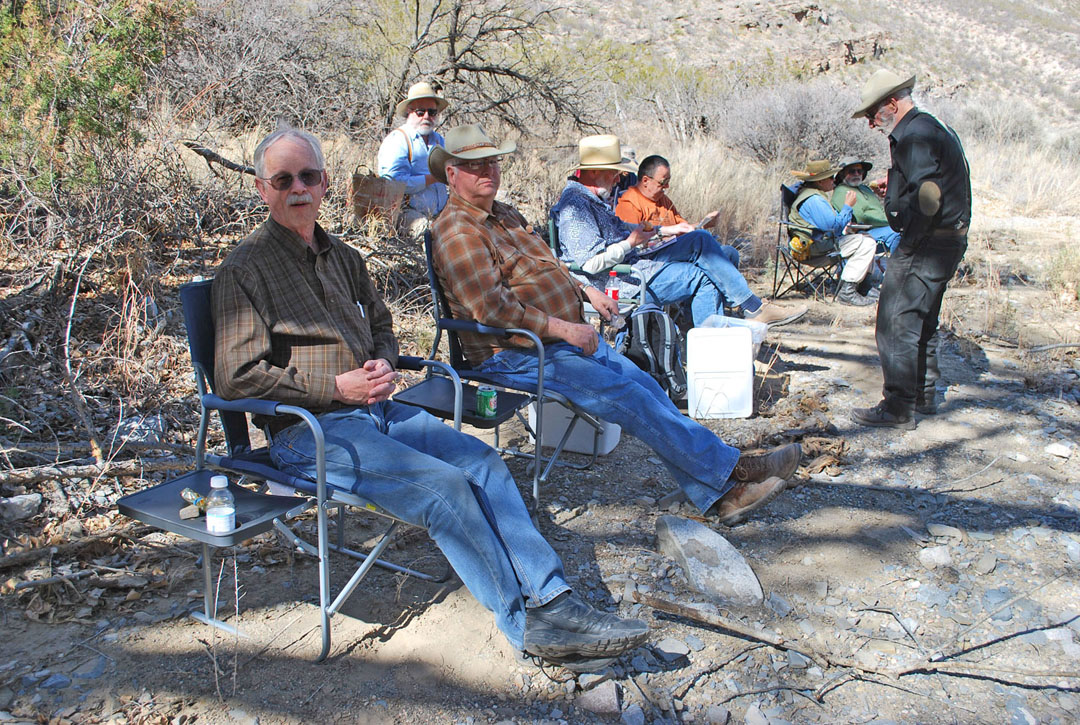
The group ate lunch under the old cottonwoods at Rock Art Spring.
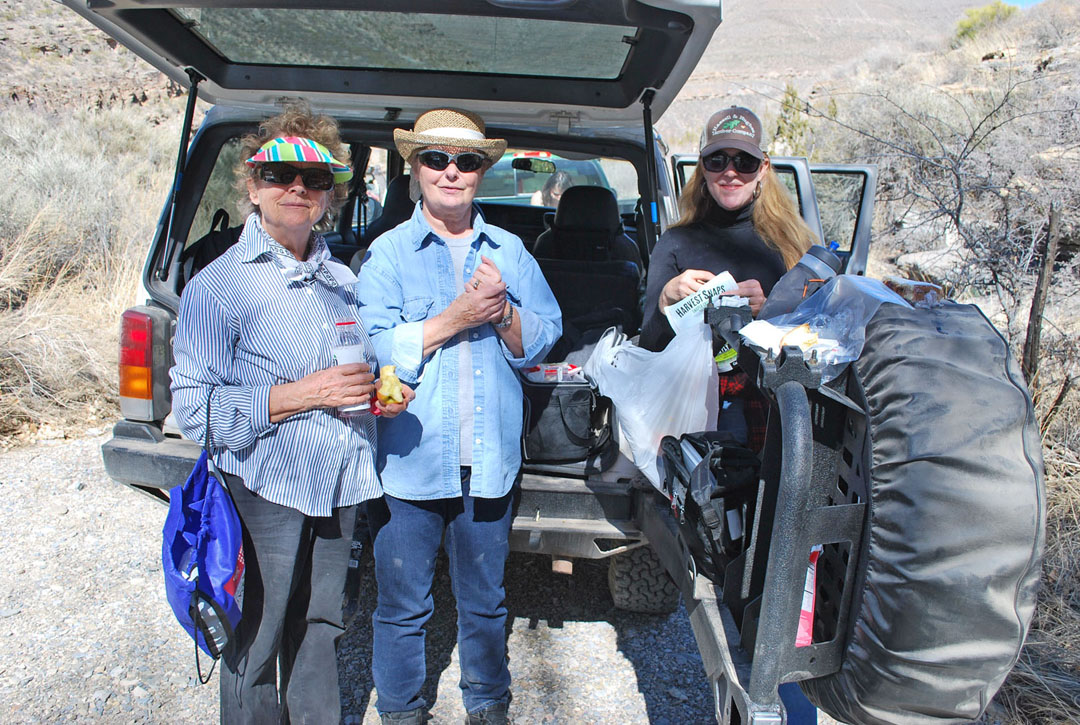
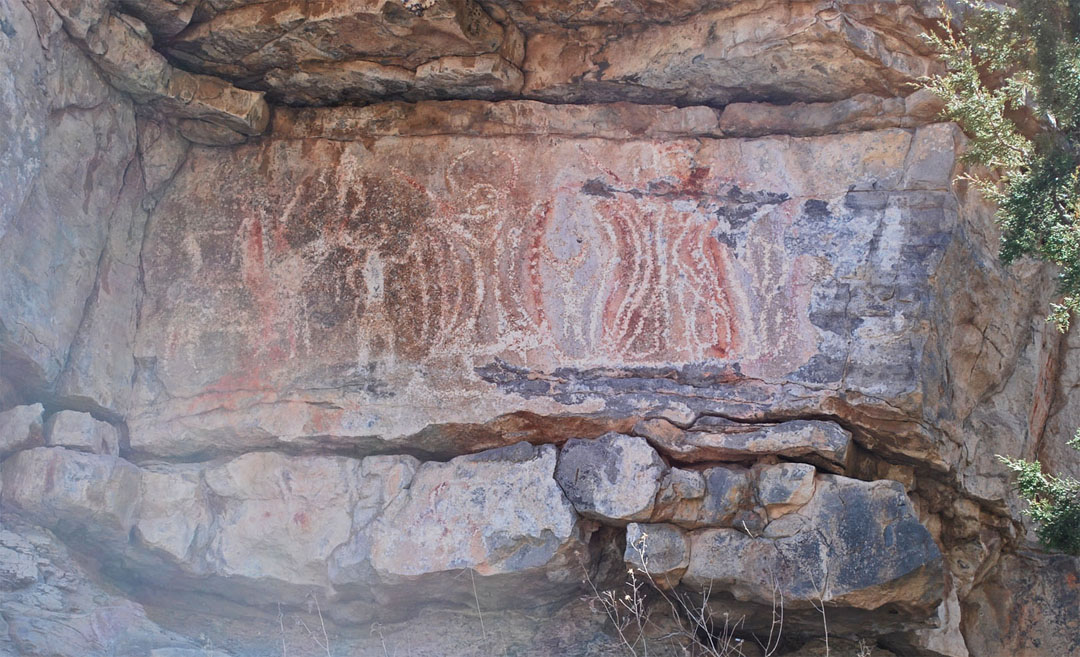
These are the main images at Rock Art Spring and are both pecked and painted on the rock wall. They are attributed to the Apache as the left figure is clearly
on horseback, meaning it was drawn after contact with the Spanish.

 Historical Society Homepage
Historical Society Homepage